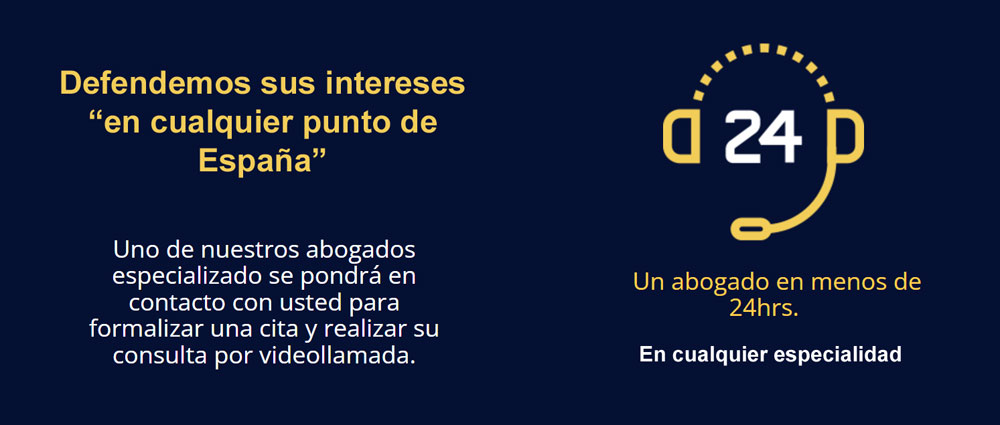
Table of contents
Many people, either because it appears incorrectly in their official documents, in order to preserve the name of one of their parents or for any other reason, wonder how to change their surname. This is a real option and contemplated by Spanish law, but it has many nuances. For this reason, here we would like to delve into the subject.
Changing surnames: is it possible?
The answer is yes. In fact, anyone can change their surname if any of the following circumstances apply:
- The person requesting the change of surname must be known to the person requesting the change of surname at the registry office. Under no circumstances may he/she have created it for the purpose of obtaining the change.
- The change may not result in the applicant's two surnames belonging to a single ascending line if at the time of his or her birth he or she was recognised and registered by his or her maternal and paternal parent.
- The new surnames requested must legitimately belong to the person making the change.
- This change must not be detrimental to third parties.
- There must be just cause.
However, if you can change your surnames even if you do not meet all these requirements, you should know that the regulations governing the Civil Registry provide for a series of exceptions. These are:
- Gender violence: people who suffer from it may change their surnames without the above requirements being met, provided that there is a precautionary protection measure of a judicial nature or any other case of urgency.
- Surnames contrary to decorum: there are cases of surnames that may be offensive to the person who bears them or to third parties. If their use entails some serious inconvenience, it is not necessary to comply with the established requirements.
- Preservation of Spanish surnames: in order for this protection measure to be applied and for the surname to be changed, the risk of disappearance must be adequately justified.
- Spelling regularisation: it is possible that, due to a mistake on the part of the parent or the Civil Registrar who carried out the registration, there is a spelling mistake in the surname. In this case, it can be changed without problems to conform to the general linguistic norm.
How to change the surname?
The necessary procedure to change the surname of a person must begin at the Civil Registry office corresponding to the address where the person is registered. There you should request the change by filling in the relevant forms and stating the reasons for the request.
The person in charge of that Civil Registry office will then prepare the file. The only member of the public administration with the power to make the desired changes to surnames is the Minister of Justice. However, by delegation, they can also be carried out by the Directorate General of Registries and Notaries.
Is it possible to change the surname of the father and mother?
As we said before, any person who was registered with the surnames of two ascendant lines (father and mother) must keep them during the change, unless there is a special case contemplated by the law, such as gender violence. Therefore, it is not possible to change the surname of the father or mother for a different one.
What can be done is to change the order of the surnames. Although, by tradition, the father's surname is usually placed before the mother's, nowadays couples who have a child can do it the other way round. There is only one requirement: the order agreed for the first-born child will be the order in which the couple's subsequent children, if any, will be named.
In addition, any person, on reaching the age of majority, can apply to the Civil Registry to reverse the order in order to preserve through their offspring the second-born child. Therefore, if this is the problem that concerns you, you should know that you can change your surnames without any problem.
How to change your name?
Many people do not wish to change their surname, but rather the name they have in the registry office and in their official documents. As a general rule, this is not possible. However, as in the previous case, there are exceptions that allow anyone to change it to another name. Let's take a look at them:
- When the person is habitually and effectively known by a name other than the one shown in the Civil Register.
- When his or her name involves a breach of any established rule.
- When it is a translation of a name from another language and the person wishes to standardise the spelling.
- When the subject undergoes a sex change operation and the mention of sex in the Civil Register is rectified.
- When the name involves a phonetic or graphic adaptation of any language recognised as official within Spanish territory.
In addition, there are other causes that may result in the consent of the administration to proceed with the change of name. For example, this happens when the name of the subject is considered humiliating or denigrating or when it coincides with their surnames and may lead to error.
In turn, when choosing a new name, these aspects must also be taken into account:
- The new name cannot consist of more than two simple names (José María, for example) or one compound name (María del Carmen).
- Nor may it be the same as that of a living sibling.
- It must not cause confusion with the applicant's surname or be demeaning.
To finish answering the question on how to change your name, we must say that the procedure to follow is the same as the one mentioned above. In other words, the first thing to do is to go to the Civil Registry office that corresponds to the interested party's address, fill in the relevant forms and give the appropriate reasons and wait for the person in charge of the office to process it.
In short, changing the surname or the first name of any person is not a simple process as they are considered to be exceptions to the rule. However, if the requirements are met, they do not usually take too long.
You can contact our family lawyers to make any enquiry related to this issue. We are available online anywhere in Spain.

"Anywhere in Spain"
With our online appointment system you will have immediate advice without the need for face-to-face visits or travel.
One of our lawyers specialized in your area of interest will contact you to formalize an appointment and make your consultation by video call.


Add new comment